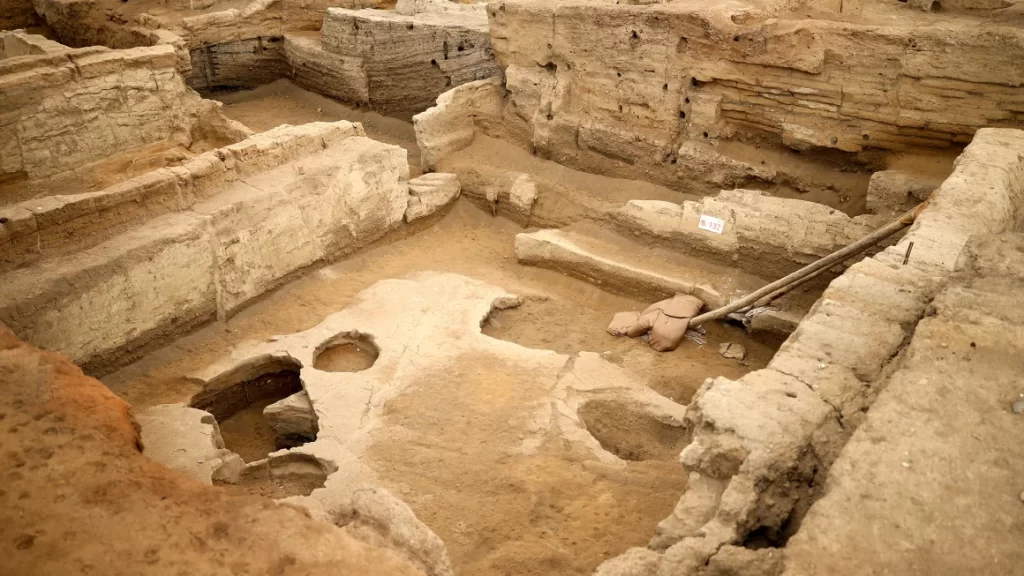Turkey has found the “oldest bread in the world,” which is believed to be 8,600 years old.

The world has lately been captivated by the amazing discovery made by Turkish archaeologists: the oldest bread known to exist dates back to 6600 BC. This significant find sheds fresh information on ancient civilizations’ culinary traditions and was made at the Çatalhöyük archeological site in the Konya district of southern Turkey. The site, referred to as “Mekan 66,” is where the remnants of an oven construction that was mostly damaged was found by archaeologists among nearby mudbrick homes. Necmettin Erbakan University Science and Technology Research and Application Center (BİTAM) in Turkey reports that the excavation crew discovered pea seeds, wheat, and barley in addition to a circular, “spongy” residue the size of a hand next to the oven. After examination, scientists discovered that the organic residue was really fermented bread that was 8,600 years old. The discovery, according to archaeologist Ali Umut Türkcan, leader of the Excavation Delegation and associate professor at Anadolu University, resembles a little loaf of bread and has a finger mark in the middle. The bread had not cooked, but it had fermented and, astonishingly, had made it to this day without losing any of its starches. Air voids in the sample were discovered during additional analysis utilizing scanning electron microscope pictures, confirming the presence of starch granules and eliminating any remaining questions. Lecturer of biology at Gaziantep University Salih Kavak emphasized the discovery of chemicals in plants and signs of fermentation, which suggested that wheat and water had been combined to make bread close to the oven. A thin coating of clay surrounding the building miraculously maintained the organic content, including the bread and wood, providing priceless insights into prehistoric food traditions. Sights of early established agricultural societies may be seen at Çatalhöyük, a UNESCO World Heritage site that offers a rare view into Neolithic life because to its well-preserved remnants. Türkcan claims that Çatalhöyük has yielded several revolutionary findings, such as the earliest weavings and wooden objects in history. The fact that it includes prehistoric wall murals and reliefs emphasizes even more how important it is for recording early agriculture and human habitation patterns. As scholars persist in exploring Çatalhöyük’s abundant archaeological legacy, the unearthing of the world’s oldest bread serves as evidence of our predecessors’ inventiveness and resourcefulness. This culinary relic emphasizes the ongoing significance of conserving and researching our common human past in addition to providing intriguing hints about historical eating customs.
Source: https://edition.cnn.com/2024/03/08/middleeast/worlds-oldest-bread-discovered-turkey-intl-scli-scn/index.html







